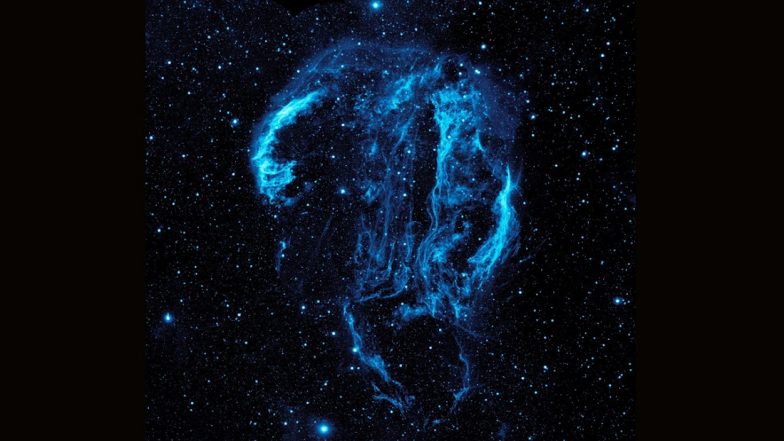NASA recently shared a picture of wispy remnants of a massive stellar explosion that occurred 5,000 to 8,000 years ago captured in ultraviolet by the Galaxy Evolution Explorer (GALEX) 1,500 light-years away in the constellation Cygnus. The original explosion would have been bright enough to be seen clearly from Earth with the naked eye. The gas and dust seen here were heated by the supernova's shockwave, which still spreads outward from the original explosion. GALEX launched in 2003 and helped scientists uncover the evolution of the early universe, study star formation, and observe black holes, all in ultraviolet wavelengths. 'Merging Galaxies': NASA's Hubble Telescope Shares Captivating Image of Two Merging Galaxies Located 350 Million Light Years From Earth (See Pic).
Check NASA's Post Here:
View this post on Instagram
(SocialLY brings you all the latest breaking news, fact checks and information from social media world, including Twitter (X), Instagram and Youtube. The above post contains publicly available embedded media, directly from the user's social media account and the views appearing in the social media post do not reflect the opinions of LatestLY.)













 Quickly
Quickly


